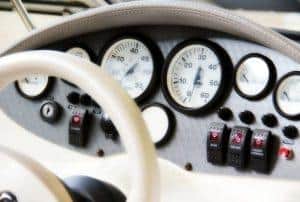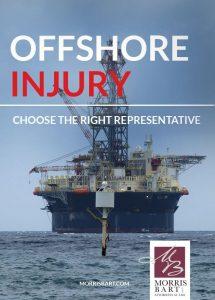
Most people do not understand workers’ compensation laws until they suffer an injury or illness on the job. Recovering money for health-care costs and time off work can be a complex process. Each case is unique. If you were injured at sea, then you may be able to make a claim under the Jones Act. However, there are several requirements that you must meet to make such a claim.
If you were injured while working on a boat, contact a New Orleans accident attorney from Morris Bart. We can evaluate your case, gather evidence, structure your claim, and handle settlement negotiations on your behalf. Call 800-537-8185 to schedule a consultation.
Here is a brief overview of “seaworthiness” as the term relates to injury claims:
What Is an “Unseaworthy” Vessel?
According to USCourts.gov, whether or not a vessel is seaworthy may impact the nature of an injury claim. The legal definition of seaworthy may differ from your general understanding of the term. In order for a vessel to be seaworthy:
- Its hull and equipment must be reasonably adequate in design and maintenance, with no preventable hazards to the safety of those onboard.
- The crew must also have the ability to operate the ship safely, including the necessary training, equipment, and experience, as well as number of crew.
- The vessel may be unseaworthy if it does not provide the seaman with the necessary tools and equipment to perform their work safely, which could vary greatly depending on the vessel’s purpose and jobs required of the crew.
In most cases, if the workplace is not safe or places the crew at risk, then the vessel is not seaworthy. It relates more to the well-being of the crew than the boat itself, per the Jones Act definition.
Many people believe that the entire vessel must be severely damaged and near sinking in order for it to be unseaworthy, but this is not necessarily true. Also, a simple mechanical breakdown does not necessarily render the vessel unseaworthy. A major issue that goes unrepaired or a hazard ignored by the owner or captain might, though.
It can be difficult to assess the seaworthiness of a vessel, especially if you are not familiar with the definitions used under the Jones Act and other maritime laws. We encourage you to speak with an attorney who handles these claims and understands these complex federal regulations before you decide how to move forward with your case for compensation.
For a free legal consultation, call 800-537-8185
Duty to Provide a Seaworthy Vessel
According to Berkeley.edu, the ship owner has a duty to provide a seaworthy vessel and crew. If the equipment, vessel, or crew is inadequate for the job and this causes injuries, the ship owner may be liable for damages. This may include medical care, lost wages, and more. Even a lack of appropriate crew training, understaffing the boat, or missing safety equipment could make a ship unseaworthy.
This is especially important for those working on seafaring ships, because most of them do not qualify for workers’ compensation in a traditional sense. These benefits are provided by state laws and these vessels operate on open water where no state laws apply. This is why we must rely on federal maritime laws to seek damages for them.
An injured seaman may be able to file a claim against either the vessel owner or his or her employer in the event of an offshore injury. The liable party or parties will depend greatly on the facts of the case and the cause of their injuries. In some cases, the vessel owner is the employer, but this is not always true.
Challenges Facing Jones Act Claimants
Recovering damages after a work-related injury is rarely a straightforward process. Your employer or the insurance company may try to find a loophole to deny or undervalue your claim. In some cases, you may have to fight a large corporation to get the compensation you need to pay for an injury caused by their negligence.
An accident attorney can represent your interests and help you avoid mistakes during the claims process. You should never accept a settlement offer or sign release documents without the approval of an injury attorney. Your lawyer can evaluate your injury and gather evidence to prove liability and negligence.
Unfortunately, critical evidence may disappear over time, so it is essential that you initiate the claims process as soon as possible. This is especially true when there is a preventable hazard onboard that puts workers at risk or when there is missing safety equipment. These are easily addressed, but many responsible parties will not act until they realize how much more it could cost them if they do not.
Click to contact our personal injury lawyers today
Speak With a Maritime Injuries Attorney from Morris Bart, LLC for Free
A New Orleans injury attorney from Morris Bart can evaluate your accident, gather evidence, and handle settlement negotiations on your behalf. We provide complimentary case evaluations and handle claims with no upfront expenses. We are a contingency fee law firm. In addition to offshore injuries, we also handle personal injury cases throughout Louisiana, Mississippi, Alabama, and Arkansas. This includes boating injuries, workers’ comp cases, and more.
Schedule a consultation today by calling 800-537-8185.
Questions?Call 800-537-8185
to find a Morris Bart office near you.



